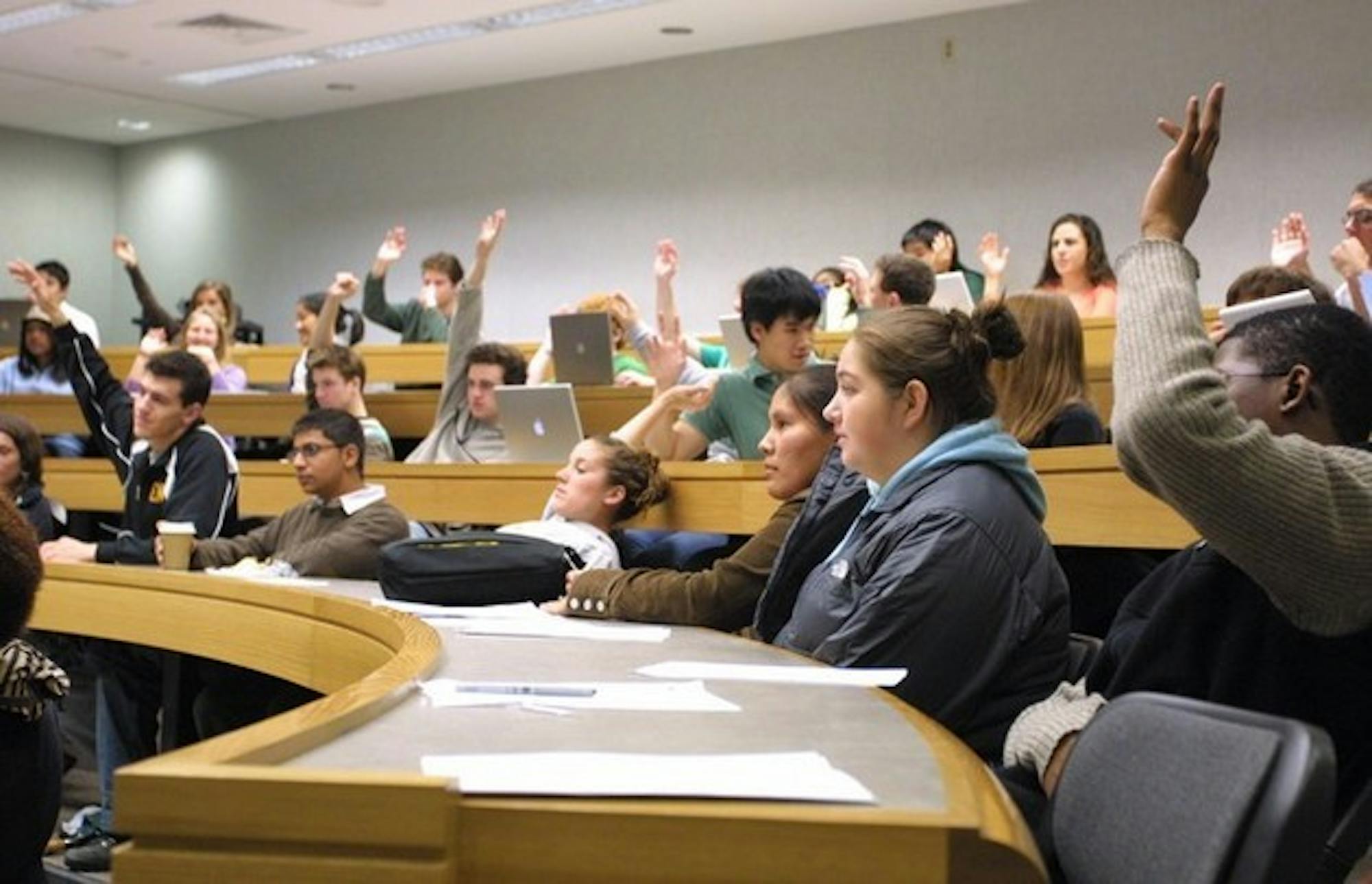The event was attended by about a dozen students, many of whom were Sexual Assault Peer Advisors concerned with how the Task Force's recommendations will affect cases of sexual assault.
The students in attendance were seeking more information about the Task Force's two most controversial proposals -- the recommendation to allow for direct questioning during COS hearings, and the recommendation to raise the Committee's burden of proof from a "preponderance of the evidence" to the stricter "clear and convincing" standard.
While "preponderance of the evidence" attributes guilt to the party condemned by a majority of the evidence, the "clear and convincing" standard requires reasonable certainty that the party is guilty.
The meeting allowed Task Force members a chance to explain the reasons and research behind the two recommendations and address concerns that the changes may discourage victims of sexual assault from reporting their abuse. Much of the discussion echoed issues raised at the Oct. 11 Student Assembly meeting.
In order to provide concerned students with a sense of how these two proposals have worked elsewhere, Task Force member Michael Herman '07 distributed statistics on the reporting of sexual offenses at Stanford University, where these two recommendations were implemented in the late 1990s.
However, because the data Herman provided only went as far back as 2000, the statistics did not present information from before the policy was put into place, causing many students to discredit the information.
"If I can't see numbers from before '98, I'm not really sure how this is helpful to me," Yuki Kondo-Shah '07, a member of Student Assembly who attended the meeting, said.
Herman responded that, though he is still in the process of acquiring data from before 1998, he thought the information provided would somewhat ease student concern.
"I understand it's not perfect," he said, "[The data] was not meant to show that [reports] necessarily went up or down. We were trying to show that with this disciplinary framework people are still reporting [sexual assault]."
Other issues raised during the debate included the perceived lack of victim protections such as restraining orders available to Dartmouth students, the question of "clear and convincing evidence" in sexual assault cases that might involve alcohol, and the lack of input from members of the Sexual Abuse Awareness Program.
Task Force Chair Adam Shpeen '07 was pleased with the outcome of the meeting. "I thought it was very productive. I thought that the individuals who came forth ... offered information and were respectful."
Discussion at the meeting focused exclusively on these two recommendations, but the Committee's report actually outlines eight proposals for presentation to College administrators, including the Dean of the College Dan Nelson.
The report suggests creating an alternative to the current options of exclusively "closed" or "open" meetings. According to the Task Force's report, because "open" meetings can be attended by all members of the Dartmouth community, as well as reporters from The Dartmouth, many students now opt to have a closed meeting. The Task Force therefore recommends creating an option in which students may invite certain members of the Dartmouth community to provide support.
A recommendation within the report also suggests entrusting the Undergraduate Judicial Affairs Office with the job of maintaining demographic records of both students who are members of the committee and students who come before the committee, to make this information a matter of public record.
The report further suggests that students appearing before the Committee be given a summary of previous similar cases to provide precedent. Currently, this information is given only to members of the committee.
The Task Force's report also calls for the standardization of those cases included in this document, as the inclusion or exclusion of certain precedent cases could influence the outcome of a student's hearing.
In addition, the report recommends that the COS guarantee students the right to a speedy trial, and allow students who have themselves appeared in front of the COS the ability to serve on the committee.
Committee members encourage students to continue the dialogue about the issues contained in the report.
Will Rollins '07, a member of the Task Force, said that he believes the Task Force will benefit from any further input obtained from student groups.
Finding the solution to problems within the COS is an "excellent intellectual challenge for every member of the student body," he said.
The COS Task Force was commissioned by the Academic Affairs Committee, a division of Student Assembly, last spring to examine the procedures within the Committee on Standards.




